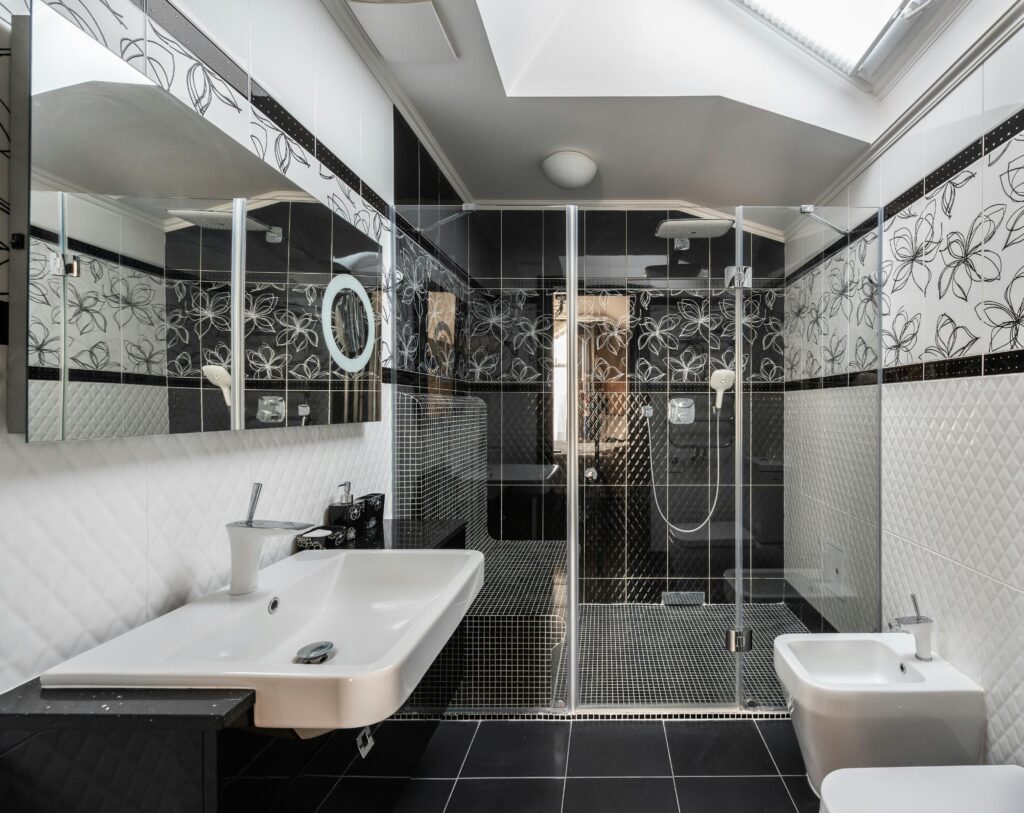In the upscale neighborhoods of Nairobi, Lagos, Johannesburg, and Cape Town, a quiet revolution is transforming how Africa’s elite approach wellness and luxury living. Beyond the infinity pools and home theaters, a new amenity is emerging as the ultimate marker of sophistication: the private home sauna.
This trend, already sweeping through wealthy enclaves across Europe and North America, is finding fertile ground among Africa’s growing class of high-net-worth individuals who are reimagining luxury not just as material accumulation, but as investment in health, longevity, and personal wellbeing.
More Than Just Heat: The Wellness Revolution Hits Home
The global wellness real estate market is experiencing unprecedented growth, and African homeowners are taking notice. What was once considered an exotic European luxury is now becoming a must-have amenity for those who can afford it. But this isn’t merely about keeping up with international trends—it’s about a fundamental shift in how affluent Africans view their homes.
Modern luxury homeowners across the continent are moving beyond traditional status symbols. The message they’re sending is clear: I have the resources to invest seriously in my health, and I don’t need to leave my sanctuary to do it. In cities where traffic congestion can turn a trip to an upscale spa into a three-hour ordeal, having wellness facilities at home isn’t just convenient—it’s transformative.
The science supporting this investment is compelling. Research consistently links regular sauna use to cardiovascular benefits, improved athletic performance, stronger immune function, and potentially lower risks of cognitive decline. For Africa’s business elite juggling demanding careers, family obligations, and the constant pressure of entrepreneurship, these health benefits represent a strategic advantage.
The African Context: Privacy, Convenience, and Cultural Resonance
In many African cultures, communal bathing and steam rituals have deep historical roots. From Moroccan hammams to traditional Ethiopian steam baths, heat therapy isn’t foreign—it’s ancestral. What’s new is the privatization and modernization of these practices within luxury homes.
Privacy holds particular significance for high-profile African homeowners. Business magnates, entertainment personalities, and political figures face unique security and discretion concerns. A private sauna eliminates the vulnerability of public wellness facilities while offering the freedom to fully relax without watchful eyes or camera phones.
Consider the reality for wealthy Africans: attending a luxury hotel spa often means navigating traffic, security protocols, and the inevitable social encounters that come with high visibility. Time is perhaps the ultimate luxury, and home wellness facilities reclaim hours that would otherwise be lost to commuting and waiting.
Investment Spectrum: From Accessible to Astronomical
The beauty of the home sauna trend is its scalability. While ultra-luxury installations can cost upwards of $100,000—featuring custom-built cedar rooms, aromatherapy systems, chromotherapy lighting, and smart controls—entry into home sauna ownership is surprisingly accessible.
Quality prefabricated saunas designed for home use typically range from $2,500 to $7,000, with most homeowners investing around $3,100 for a solid installation. For African buyers navigating import duties and installation costs, these figures might increase by 30 to 50 percent, but they remain attainable for upper-middle-class homeowners serious about wellness.
The real differentiation comes at the high end. Luxury developers in Nairobi’s Runda Estate, Lagos’s Banana Island, and Johannesburg’s Sandhurst are creating full wellness suites that combine saunas with steam rooms, cold plunges, massage areas, and meditation spaces. These installations transform entire rooms or outdoor structures into private spa sanctuaries that rival five-star hotel offerings.
For the truly wealthy, custom outdoor saunas built from thermally modified wood and featuring WiFi controls, changing rooms, covered porches, and architectural designs that blend with African landscapes are becoming the new frontier. These structures don’t just serve a function—they make a statement about values and priorities.
Generational Convergence: When Parents and Children Want the Same Thing
What makes the home sauna trend particularly interesting in the African context is its cross-generational appeal. Older, established professionals focused on longevity and health optimization are investing in these amenities, but so are their wellness-conscious children.
Africa has the world’s youngest population, with a median age under 20 in many countries. As these young Africans come of age, many have grown up with global wellness trends through social media and international education. The 20-to-35-year-old demographic—particularly those building wealth in tech, finance, and creative industries—views wellness amenities not as luxury indulgences but as essential lifestyle infrastructure.
This generational alignment creates unique market dynamics. Developers building high-end residential projects can appeal to family buyers by including amenities that serve multiple generations under one roof. The patriarch recovering from a business trip can use the sauna while his adult daughter follows her cold exposure protocol learned from international wellness influencers.
The Developer Response: Wellness as Competitive Advantage
Forward-thinking African property developers are recognizing that wellness amenities provide crucial differentiation in increasingly competitive luxury markets. In Nairobi, new developments in Karen and Kitisuru are incorporating shared wellness facilities including saunas, steam rooms, and cold plunge pools as standard offerings in their clubhouses.
Lagos developers, working with land constraints and the premium on space, are getting creative by building wellness amenities vertically—rooftop wellness decks with saunas and plunge pools offering views of the Lagos lagoon. In Cape Town, developers are leveraging the city’s natural beauty by creating outdoor wellness pavilions with saunas that open to mountain or ocean views.
The calculation for developers is straightforward: wellness amenities command premium prices and attract high-quality buyers who appreciate thoughtful design. More importantly, they create communities of like-minded residents who value health and longevity, fostering the kind of cohesive, desirable environments that maintain their value over time.
Beyond the Sauna: The Broader Wellness Ecosystem
Savvy homeowners aren’t stopping at saunas. The trend toward comprehensive home wellness is spawning complete ecosystems that might include infrared therapy panels, meditation rooms with sound healing equipment, home gyms with recovery zones, oxygen therapy spaces, and dedicated areas for practices like yoga and breathwork.
Some African luxury homes are incorporating traditional healing spaces alongside modern wellness technology—perhaps a sauna next to a room designed for traditional meditation practices, or a steam room that can double as a space for indigenous healing rituals. This fusion of global wellness trends with African cultural practices creates uniquely meaningful spaces.
The Future: Where African Wellness Luxury Is Headed
The trajectory is clear: we’re at the beginning of a wellness and longevity boom in African luxury real estate. As more research emerges linking regular heat exposure to health benefits, and as wellness-conscious younger buyers enter their peak earning years, demand will only intensify.
Climate considerations unique to Africa are also driving innovation. In tropical regions, outdoor saunas designed for excellent ventilation are gaining popularity, while in South Africa’s varied climate zones, four-season saunas with climate control are standard. Solar-powered sauna heating systems are emerging as both environmentally conscious and cost-effective solutions for regions with abundant sunshine.
The most significant shift, however, may be philosophical. Africa’s wealthy are increasingly viewing their homes not merely as showcases of success but as foundations for longevity, family wellness, and sustainable high performance. The private sauna—whether a modest prefab unit or a palatial custom spa suite—symbolizes this evolution from conspicuous consumption to conscious investment in health.
For those considering joining this trend, the question isn’t whether home wellness amenities will become standard in luxury African homes. They already are. The question is simply how elaborate and personalized your wellness sanctuary will be. In a continent where family, community, and longevity have always held deep cultural significance, the home sauna trend isn’t foreign—it’s a modern expression of timeless values.
At Kraftman Interiors, we track emerging trends in African luxury design and help homeowners create spaces that blend international sophistication with local sensibility. Explore our comprehensive guides to transforming your home into a wellness sanctuary.

